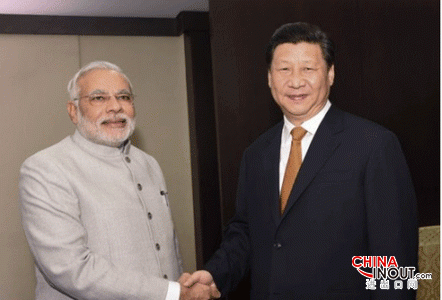
上述報道稱,,有關(guān)兩國關(guān)稅豁免的具體安排措施,,將在今年10月韓國釜山RCEP第10輪談判中完成。
區(qū)域全面經(jīng)濟伙伴關(guān)系協(xié)定談判歷時近3年,,今年8月在吉隆坡舉行的第三次部長級會議取得關(guān)鍵進展,。
在這次會議上,與會各方就貨物貿(mào)易出價模式達成一致,,同意力爭于2015年年底前實質(zhì)性結(jié)束談判,,并在2016年內(nèi)盡快解決其他技術(shù)性問題。
《印度教徒報》的說法是,,印度工商部已經(jīng)與印度業(yè)界展開磋商討論,,哪些領(lǐng)域的關(guān)稅可以放開,哪些需要保護,,豁免的關(guān)稅執(zhí)行期將為10年,。
商務(wù)部國際貿(mào)易經(jīng)濟合作研究院世界經(jīng)濟研究所所長梁艷芬在接受早報記者采訪時指出,豁免部分商品關(guān)稅帶來的經(jīng)濟影響要看具體商品類別,,“不太可能一下子就對敏感產(chǎn)品放開,,可能會選些對雙方影響不大的品類。”
有分析認(rèn)為,,關(guān)稅減免,,將有利于各方的商品進入對方市場。這對印度影響頗大,。今年5月初,,印度工商業(yè)聯(lián)合會曾表態(tài),中印簽署自貿(mào)協(xié)定,,短期來看受益的肯定是中國,,印度會處于不利的地位,因為印度的關(guān)稅很高,。(中國進出口網(wǎng))
On September 13, "The Hindu" quoted government sources as saying that India and China has agreed, under the Regional Comprehensive Economic Partnership (RCEP) Agreement framework, tariffs of half the goods in bilateral trade between India and China would be exempted. The government source said that the two countries have agreed on 42.5% of the bilateral trade of goods exempted from customs duties, "No industry hopes Chinese goods into India with zero tariff, so we’re nervous, but it must take such a pragmatic step, because we will also be able to have zero-tariff access to the Chinese market. "
The above-mentioned report also said, concerning the specific arrangements for bilateral tariff exemption measures, it would be completed in the tenth round of negotiation of RECP in October this year in Busan, Korea.
Regional Comprehensive Economic Partnership Agreement negotiations lasted nearly three years, and made key progress in the Third Ministerial Conference held in Kuala Lumpur in August this year.
At the meeting, the participants agreed on the bid patterns of trade in goods, and agreed to strive to complete the substantive negotiations before the end of 2015 and to resolve other technical issues in the year 2016 as soon as possible.
"The Hindu" argument is that India's Commerce and Industry Ministry has launched consultations with India Industries on which field tariff can open, which needs to be protected, the implementation period of tariff exemptions will be 10 years.
The director of Institute of World Economy of Academy of International Trade and Economic Cooperation Liang Yanfen in an interview with Post reporters pointed out that the economic impact of some of the goods exempted from customs duties depends on the specific product category, "it is unlikely to suddenly exempt sensitive product tariff, some categories that has little effect on both may be chosen."
Some analysts believed that the tariff reduction would help the goods to enter each other's market. That would have a lot of influence on India. In early May this year, the Federation of Industry and Commerce in India said, China and India signed a free trade agreement, in the short term, it would benefit China, India will be at a disadvantage, because of the high tariff in India.











